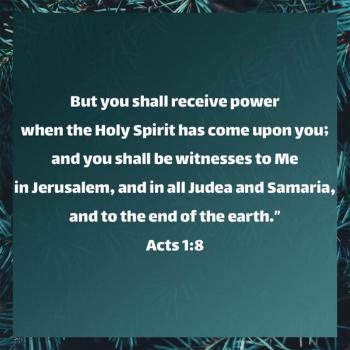Users Who Spiked

RECIPROCAL MERCY
Private Notes
Private Notes
Notes
Here, in Luke's version of the Sermon on the Mount, we see a version of The Beatitudes in verses 20-23 (addressing the poor and disaffected), and Jesus's pronouncement of Woes in verses 24-26 (to the comfortable). In verses 27-36, He begins fleshing out what living in the blessed manner He describes actually translates to in everyday life.
These are among the verses most often cited by the Quakers and other such groups who insist on pacifistic behavior from their adherents. Proof-texting with selected verses is not, however, an appropriate way to build a theology. The whole of scripture paints a much more nuanced picture.
The meekness He tells us to display seems beyond reason to most of us today, especially when He touches on forgiving debts. I can hear it now: "What? He's messing with my money again!" Without attempting to dissect details as to the postions believers should hold regarding pacifism versus militarism, self-defense or defense of others, or whether it is ever appropriate to lend and expect repayment, let's consider a broader view of His words to us. What is really at the heart of this teaching?
Jesus very clearly wraps up the intent of the passage in verse 36. Let's consider it is as a parallelism, as many of the Proverbs are stated.
"Therefore be merciful,
just as your Father also is merciful."
Jesus counsels us to look at the example of God's mercy toward us when considering how to treat others, especially those who may have wronged us or who owe us something. This principle is most clearly shown in Matthew 18, Jesus's Parable of the Unforgiving Servant. (Verses 21-35)
Most worrisome is the restriction we put on God when bitterness and resentment are held in our hearts. Jesus told us, "'And whenever you stand praying, if you have anything against anyone, forgive him, that your Father in heaven may also forgive you your trespasses. But if you do not forgive, neither will your Father in heaven forgive your trespasses.'" (Mark 11:25-26 NKJV)
There is nothing man has done to us or could do to us that is worth hindering the forgiveness of our Heavenly Father. As we are grateful for His mercy toward us, how can we but extend equivalent forgiveness to others? Thank you, Father for your mercy and grace toward me!
(https://pappawpyle.wordpress.com/2019/07/13/reciprocal-mercy/)

































